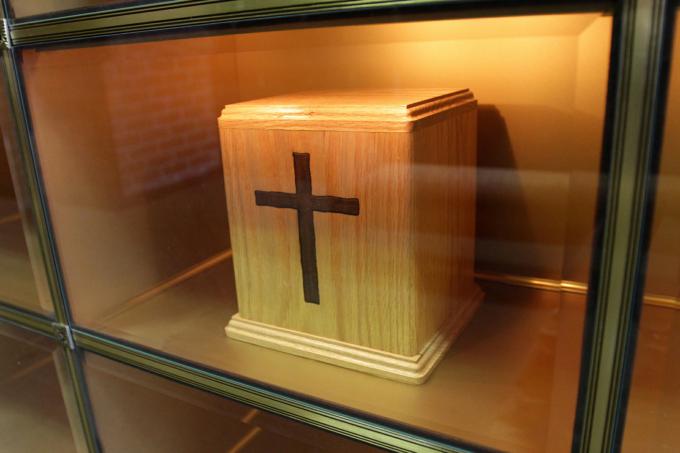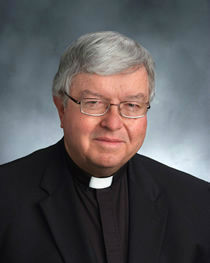
Faith
. . . Catholic teaching continues to prefer burial of the body because, in the Church's mind, burial reflects a greater reverence and respect for the deceased and more clearly expresses the Christian belief in an eventual resurrection, when a person's body and soul will be reunited.

Doyle
Q. I've been having conflicting ideas about cremation. My husband wants to be cremated; at first, I was all for it, but now I'm having a difficult time with that decision. I know in the Apostles' Creed it says, "the resurrection of the body," and I also know that the Church prefers burial of the body, even though it does allow cremation followed by immediate burial of the ashes. Can you help me with these two options? (Wichita, Kansas)
A. For many centuries, the Catholic Church did not allow cremation. Historically, cremation was linked to the burial practices of pagans, whose religious beliefs did not include the expectation of eventual resurrection and viewed death as the definitive obliteration of the human person. It was only in 1963 that the Church began to allow cremation as it became more commonplace for both economic and sanitary reasons.
As you indicate, though, Catholic teaching continues to prefer burial of the body because, in the Church's mind, burial reflects a greater reverence and respect for the deceased and more clearly expresses the Christian belief in an eventual resurrection, when a person's body and soul will be reunited.
As the appendix to the Order of Christian Funerals puts it: "The body of a deceased Catholic Christian is also the body once washed in baptism, anointed with the oil of salvation, and fed with the bread of life. ... The body of the deceased brings forcefully to mind the Church's conviction that the human body is in Christ a temple of the Holy Spirit and is destined for future glory at the resurrection of the dead" (No. 412).
So, the choice is yours to make, but the Church's preference is clearly for traditional burial. And as you mention, if the option is made for cremation, the cremated remains should be buried in a grave or entombed in a mausoleum.
Q. I recall some time ago a change in the language of the creed we say at Sunday Mass to make it more inclusive. The new phrases were things like "For us and for our salvation" and "was incarnate of the Virgin Mary and became one of us." I realized recently, though, that our parish no longer uses this newer language and has gone back to "for us men" and "became man."
When was it decided to revert to the older language? Or perhaps the inclusive language was not universal -- in my case, perhaps it started at the parish of the university I attended. (Lansdale, Pennsylvania)
A. The phrases that you quote -- "for us and for our salvation" and "became one of us" -- are "homemade versions" of the language of the Nicene Creed and have never enjoyed any official status. My guess is that the priest at the university parish you attended crafted that wording himself, so as not to offend any members of the congregation.
The actual text -- as approved for use at Mass and as it appears in the Catechism of the Catholic Church -- is the following: "For us men and for our salvation he came down from heaven, and by the Holy Spirit was incarnate of the Virgin Mary and became man."
Should it be of any comfort to you, as I have mentioned before in this column, the Latin word from which the English is translated -- "homines" -- is generic; it means "person" or "human being," not "member of the male sex."
But the average participant at Mass can't be expected to know this, and so I look forward to the day when the Mass text in English will reflect more clearly that wider meaning. Meanwhile, I often choose to use instead the Apostles' Creed, which is a permissible liturgical alternative and whose language cannot be misunderstood as exclusive.
- Father Kenneth Doyle is a columnist for Catholic News Service
Recent articles in the Faith & Family section
-
Scripture Reflection for April 21, 2024, Fourth Sunday of EasterJem Sullivan
-
The new Temple: How Easter changes religionDr. R. Jared Staudt
-
The wonder of Ordinary TimeLucia A. Silecchia
-
Is there still responsibility for past sins after confession?Jenna Marie Cooper
-
Wounds, not scarsJaymie Stuart Wolfe


















